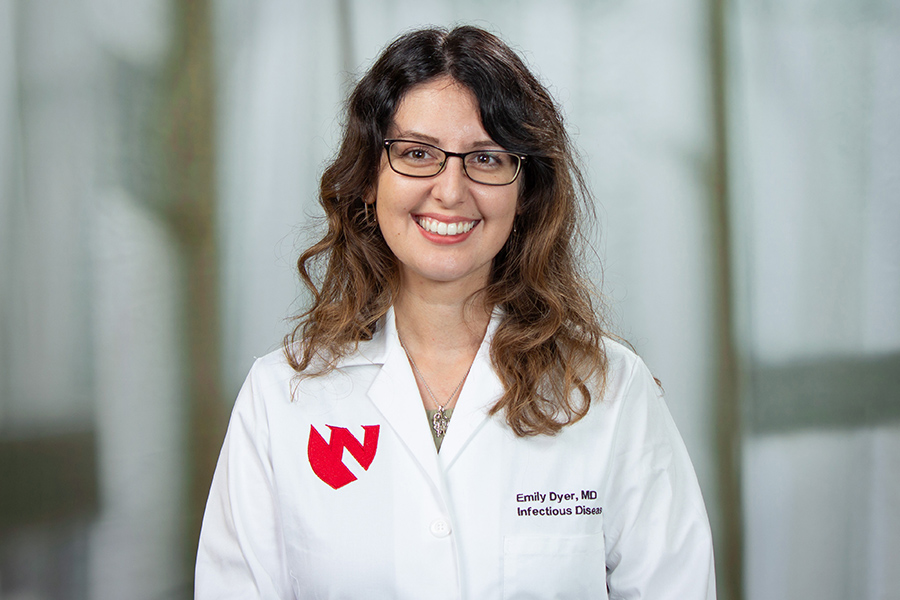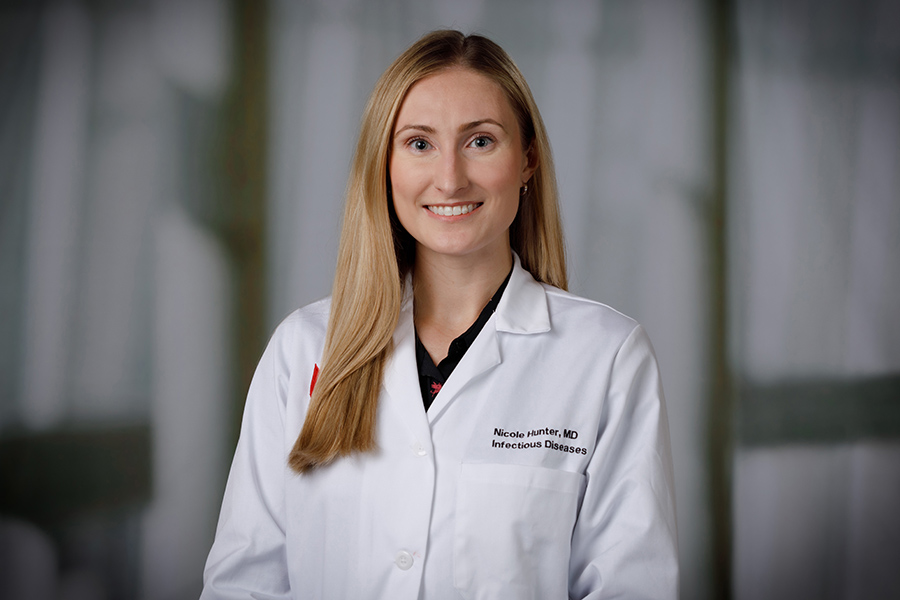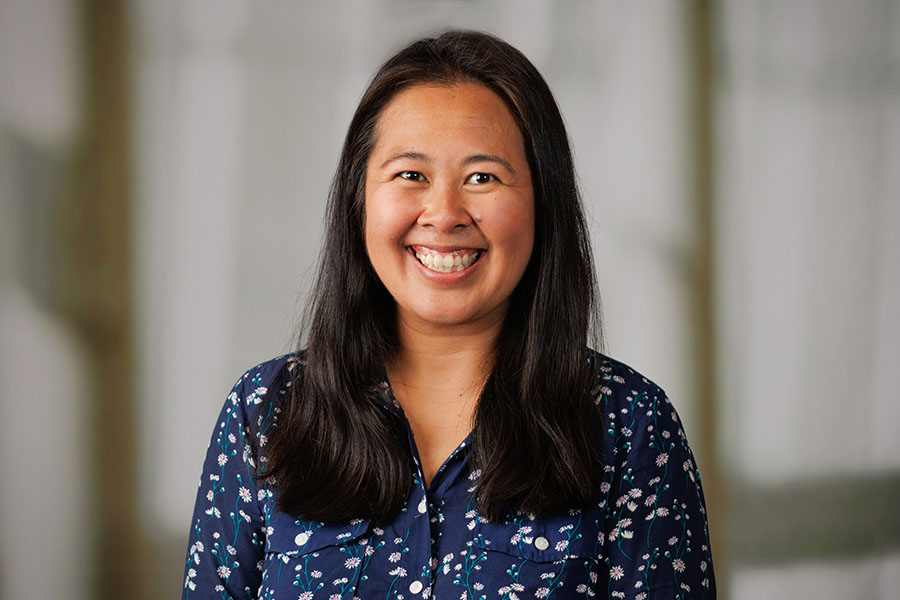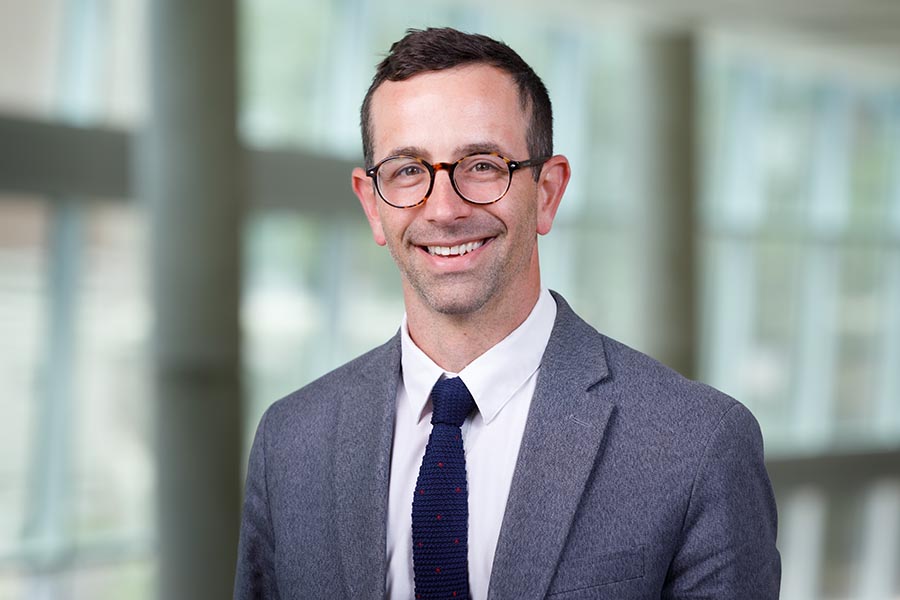| Presenter | Title | Poster number | Date | Time | UNMC ID Coauthors |
| Evangeline Green, DO, MPH [Resident] | Oral Antibiotic Stepdown Therapy for Uncomplicated Enterococcus Blood Stream Infections: A Retrospective Cohort Study | P-882 | 10/21/2025 | 12:15-1:30 | Cristina Torres, MD, Elizabeth Lyden, MS, Jasmine R Marcelin, MD, Mackenzie R Keintz, MD |
| Scott J. Bergman, Pharm D | Evaluation of oral antibiotic prescribing for uncomplicated Gram-Negative bloodstream infections following implementation of institutional guidance at an academic medical center | P-28 | 10/20/2025 | 12:15-1:30 | Joshua Lechner, PharmD, Mackenzie R. Keintz, MD, Jasmine R. Marcelin, MD, Molly M. Miller, PharmD, Elizabeth Lyden, MS, Jihyun Ma, MS, Trevor C. Van Schooneveld, MD, |
| Calvin Albrecht, MD [Fellow] | Is Respiratory Gram Stain Useful in the Era of Rapid, Highly Sensitive Molecular Pneumonia Panels? | P-612 | 10/20/2025 | 12:15 PM – 1:30 PM | Matthew Anderson, Elizabeth Lyden, Jonathan Ryder, and Trevor Van Schooneveld |
| Angela Hewlett, MD | Biopreparedness and Biocontainment Education in U.S. ID Fellowships | | 10/22/2025 | 12:15 PM – 1:30 PM | Cristina Torres, David Brett-Major, James Lawler, Dan Cybulski, Gavin Harris, Elizabeth Schnaubelt |
| Anna Kilzer [Student] | Biopreparedness Education in US Medical Schools | | 10/22/2025 | 12:15 PM – 1:30 PM | James Lawler, Angela Hewlett |
| Jillian Mack, PharmD [ID Pharmacy Resident] | A Stewardship Focused Evaluation of Patients Treated with Ceftriaxone for Infections due to Penicillin Susceptible Streptococcus spp. in Outpatient Parenteral Antimicrobial Therapy | | 10/22/2025 | 12:15 PM – 1:30 PM | Nicolás Cortés-Penfield, Richard Hankins, Molly Miller, Elizabeth Lyden, Melissa LeMaster, Sara Azimi, Scott Bergman, Trevor C. Van Schooneveld, Mark E. Rupp, Bryan Alexander |
| Shawnalyn Sunagawa, PharmD | Clinically Significant Adverse Event Rates for Daptomycin Outpatient Parenteral Antimicrobial Therapy | | 10/22/2025 | 12:15 PM – 1:30 PM | Richard Hankins, Nicolas Cortes-Penfield, Bryan Alexander, Melissa LeMaster, Molly Miller |
| Nicolas Cortes-Penfield, MD | Complete device extraction optimizes cure in deep brain stimulator & responsive neurostimulator device infections | P-126 | 10/20/2025 | 12:15-1:30pm | |
| Josh Havens, PharmD | Scalability Metrics and Effort Requirements for a Long-Acting CAB/RPV Program | 1871 | 10/22/2025 | 12:15-1:30pm | Kubat M, Davis JM, Fadul N, Havens J, Bares SH, Sunagawa S, Havens JP |
| Duncan Works [Student] | Outcomes of a Learning Needs Assessment Survey in the Development of the Extension for Community Health Outcomes Model for HIV Training in Midwestern Non-Metropolitan Areas | 1891 | 10/22/2025 | 12:15-1:30pm | Cramer D, Essam Nkodo EN, Lyden E, Zhan Y, Furl R, Fadul N, Davis JM |
| Vanessa Lo [Student] | Assessing Doxycycline Post-Exposure Prophylaxis (doxy PEP) Engagement in Care at a Midwestern HIV/PrEP Clinic | 333 | 10/20/2025 | 12:15-1:30pm | Havens JP, Bares SH, Davis JM, Scarsi KK, Sunagawa S |
| Jessica Witt, PharmD [MATEC Clinical Scholar] | Assessing HIV Pre-Exposure Prophylaxis Coverage at a Midwest Federally Qualified Health Center (FQHC) | 743 | 10/20/2025 | 12:15-1:30pm | Havens JP, Bares SH, Downes JM, Davis JM, Dworak A, Carter M, Sunagawa SW |
| Nicole Kusnik, MD [Fellow] | A young man with advanced HIV who presented with shortness of breath and splenomegaly | 2214 | 10/22/2025 | 12:15-1:30pm | Sturd NA, Roma K, Hewlett A, Bares SH, Davis JM |
| Emmanuel Nazaire Essam Nkodo, MD, MPH | Beyond Distance: Social Barriers Influence Long-acting Antiretrovirals Location Preference Among People with HIV in Rural Areas | P-2061 | 10/22/2025 | 12:15 PM – 1:30 PM | Renae Furl, Elizabeth Lyden, Daniel Cramer, Jennifer O’Neill, Maureen Kubat, Heather Saarela, Titilola Labisi, Nada Fadul. |
| Priscila Rodrigues Armijo, MD | Outcomes of a Statewide Educational Intervention Focused on Reducing COVID-19 Health Disparities Through a Quality Improvement Approach. | | | | Salman Ashraf, Adati Tarfa, Elizabeth R. Lyden, Jasmine Marcelin, Jonathan H. Ryder, Jeff Wetherhold, Mahelet Kebede, Subhadra Mandadi, Precious S. Davis, Shirley Delair, Kelly Cawcutt, Andrea D. Jones, Mahliqha Qasimyar, Gail M. Etherton, Erica Stohs, Nada Fadul |
| Trevor Van Schooneveld, MD | Effect of Clinical Guideline Implementation on Use of Plasma Microbial Cell-free DNA Sequencing Testing at an Academic Medical Center | P-837 | 10/21/2025 | 11:15am-12:30pm | Tess Karre, Jonathan Ryder |
| Mackenzie Starlin [Student] | Measuring the Clinical Impact of a Novel Infectious Disease Step-Down Service | P-1874 | | | Makenzie Starlin, Rick Starlin, Bryan Alexander, Molly Miller, Kaeli Samson, Trevor C. Van Schooneveld
|
| Samantha Moreno [Student] | Early Exposure to Infectious Diseases Specialty Among Undergraduate Students with Interests in Healthcare Careers | | 10/22/2025 | 12:15pm-1:30pm | Jasmine R Marcelin |
| Juan Teran, MD | Understanding Infection Control Needs in Nebraska Schools: Insights from School Health Staff | P-1888 | 10/22/2025 | 12:15 – 1:30 PM | Chris Cashatt, Mounica Soma, Salman Ashraf, Kate Tyner, Andrea Riley, Alice Sato, Robin Williams |
| Juan Teran, MD | Patterns and Prevalence of Carbapenemase-Producing Organisms Identified in Nebraska Healthcare Facilities Following Whole Genome Sequencing (2019-2024) | P-1069 | 10/21/2025 | 12:15 – 1:30 PM | Kathryn Burbach, Ishrat Kamal-Ahmed, Salman Ashraf, Amy Roden, Peter Iwen, Michael Wiley |
| David Warren, MD | Impact of Chlorhexidine Gluconate (CHG) Bathing on Bloodstream Infection Rates in Hematology-Oncology and Hematopoietic Stem Cell Transplant (HO/HSCT) Units | | 10/21/2025 | | |





Recent Comments